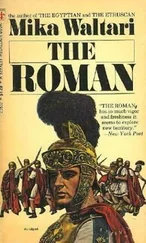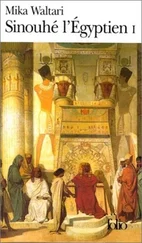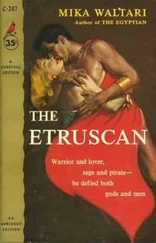The five daily prayers and ablutions helped to pass the time, and having nothing else to do I diligently studied the Koran. I also took the friendly eunuch’s advice and performed the breathing exercises of the dervishes, and fasted now and then. But I soon found my faith too weak for me to attain the state of supreme rapture extolled by Marabouts and holy dervishes.
At last, therefore, I abandoned these exercises and was content to maintain my body in good health and to eat with appetite. All day long I strolled about the courtyard while flocks of migrating birds swept with a rush of wings overhead against the turquoise sky of autumn. In this way I came to know my fellow captives, among whom were many eminent Mussulmans and also Christians who were of value to the Sultan for the exchange of prisoners. They idled the days away lying on the grass about the cookhouse, though some of the more industrious busied themselves with carving tallies of the days of their imprisonment, and proverbs, on the smooth stones at the base of the towers. Twice I met Rashid, the Prince of Tunis, and heard him revile Khaireddin and Sultan Suleiman for their dastardly betrayal.
Weeks passed, the acacias in the courtyard shed their leaves, the days grew chilly, and I wearied of the company of my fellows. I was consumed with yearning for my beautiful house on the shores of the Bosphorus, and could imagine nothing more desirable than to recline on a soft cushion on the terrace as dusk fell over the waters and one by one the stars came out. I longed to see again my red and gold fish, to hold my little daughter Mirmah by the hand and guide her steps as she struggled toward the faithful Alberto’s embrace. I wasted away with longing and believed myself abandoned by everyone.
One clear autumn day as I stood on top of the marble tower I looked across the misty blue sea and beheld sails, pennants, and silver crescents, and like an echo from another world I heard the boom of cannon from Seraglio Point. The turrets of the Gateway of Peace shimmered dreamlike in the distance, while at my feet the billowing landscape, sprinkled with white tombstones, glowed golden in the clear autumn air. A dusty, chalk-white road wound its way among the hills and vanished in the distance.
The freedom, the beauty of the scene cut me to the heart, and I was sorely tempted to hurl myself down from the giddy height of the tower and find release from this world’s vanity, suffering, and hope.
Well that I did not, for that day brought an unexpected turn in my fortunes. At dusk three deaf-mutes came to the prison. With dragging steps they crossed the courtyard to the marble tower on the side nearest the sea, where the death pit was. Here in silence they strangled Prince Rashid and cast his lecherous body into the hole, from which incident I concluded that Khaireddin had captured Tunis and so had no further use for Rashid ben-Hafs.
Like all the other prisoners I was aghast at the arrival of these deaf- mutes. Of the three I recognized at once the ashen-faced, cruel Negro who used to visit Abu el-Kasim’s slave. As he crossed the courtyard he gave me an expressionless look, but with his fingers he made a reassuring sign to show that I was not altogether forgotten.
This greeting was the first message I had had from the outer world since Giulia’s letter, and I was seized by so feverish an agitation that I could not sleep that night. On the third day after the deaf-mutes’ appearance I was summoned by the eunuch, who ordered my fetters to be struck off, gave me back my clothes and money, and accompanied me to the gate as a mark of his unchanging regard. Thus I was released as suddenly and mysteriously as I had been imprisoned so many months ago.
Outside, to my amazement, I found Abu el-Kasim awaiting me in a splendid palanquin, and no one will blame me for bursting into tears at the sight of him. I wept like a fountain, leaning against his scrawny shoulder and breathing in the bitter, spicy smell of his kaftan as if he had been my father.
Abu drew me in beside him and under cover of the curtains gave me a little wine. Recovering slightly from my agitation I asked him eagerly whether I was indeed free, what I had been accused of and what had been happening in the world since I had been snatched from it. Abu el-Kasim said, “Ask no foolish questions. The matter is of no importance and will become clear to you in due course. All you need do now is come home, recite the first sura, and give me the Russian woman and her son according to your promise. It was only to fetch them that I returned, and for the rest of my days I shall live peacefully in Tunis. Thanks to Khaireddin that town has been liberated from the Hafsid tyranny and now celebrates its freedom under the vigilant protection of the janissaries.”
Not until he had assured himself that I meant to keep my word and give him the Russian did he heave a sigh of relief and tell me the reason for my imprisonment.
It seemed that when Khaireddin set sail in the spring he made first for Coron and supplied the fortress with new cannon. Then for the first time in history the Mussulman fleet sailed openly through the
Strait of Messina to display its strength, after which it cruised slowly northward and systematically raided the coast of the Kingdom of Naples. Doria dared not come out to meet Khaireddin, since because of seemingly well-founded rumors he believed the fleet to be bound for Genoa. Most unluckily a Christian slave, in return for his freedom, promised to show Khaireddin’s land forces the way to the castle of Fondi, where there was reputed to be immense treasure.
“It appeared, however,” said Abu el-Kasim, “that the slave had greatly exaggerated the value of this, and in their fury the janissaries broke into the chapel, plundered the coffins of the dead lords of the castle, and scattered their bones. The lady of the castle, a widow of ripe years named Giulia Gonzaga, fled in her nightgown. Khaireddin had never heard of her, but after her escape she spread the most colorful stories of her flight. Since her widowhood she had been wont to entertain poets and other riffraff, in the frivolous Italian manner, and in return for her hospitality these poets hailed her in their verses as the most beautiful woman in Italy. You know what poets are-there was no harm in any of it. But in her crazy vanity this woman spread the report that Khaireddin had stormed her castle solely on her account, because he meant to send her to the harem of his lord, Sultan Suleiman. She told the tale so often that she began to believe it herself.”
“Allah be good to us!” I exclaimed, deeply shaken. “Now I understand. Small wonder that Sultana Khurrem was angry when she heard of this, for she must have believed that Khaireddin had betrayed her confidence at my instigation. I can only marvel that my head remains on my shoulders. A woman scorned is more savage in her jealousy than an Indian tiger.”
“The Venetian Signoria took care that this entertaining story should reach the ears of the Sultana, and she was the more eager to believe it for a certain disharmony that had arisen between her and the Sultan over Prince Mustafa, just before Suleiman went to war. The best proof of its falsehood is that the groom who risked his life to save Giulia Gonzaga was slain afterward at her order, because he laughed at her story and said that the Sultan would certainly prefer a sack of flour to the lady’s somewhat flabby charms.”
“Then,” I remarked, “the misunderstanding must now have been cleared up and Sultana Khurrem will know that I am innocent. But if not, I must flee to Persia and seek refuge with the Grand Vizier, loath though I am to encounter Shiite swords.”
Abu el-Kasim said, “She believes in your innocence, and Khaireddin’s princely gifts have entirely dispelled her groundless suspicions. But now Grand Vizier Ibrahim is reported to have marched with great pomp into Tabriz, the Shah’s capital, and so reached the peak of his glory. The Sultan has joined him there and lovely Khurrem can only sit and bite her nails. For many days Istanbul has been rejoicing at the conquest of Persia, and now new fires are being lit to celebrate the capture of Tunis.”
Читать дальше











